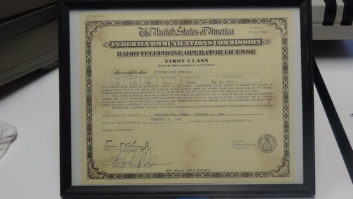
Wednesday’s multi-hour Capitol Hill hearing on the Arbitron Portable People meter crystallized some issues in the debate over whether the PPM methodology undercounts minority listeners.
The upshot is that Rep. Edolphus Towns, D-N.Y., chairman of the House Oversight and Government Reform Committee, gave all parties 30 days to come up with some sort of plan and “a realistic timetable” to reach an agreement. Otherwise, he said he’s prepared to move on a legislative solution, though he didn’t say what that would be.
For the first time, I heard exactly why the Media Rating Council has only accredited the PPM in two out of 30+ markets.
MRC Executive Director/ CEO George Ivie said there’s little doubt PPM is an improvement over diary ratings and Arbitron has made some improvements in how it persuades people to wear the meter; however he said the voluntary watchdog group that looks at all ratings providers has ongoing concerns. (MRC accreditation of PPM matters to Arbitron because acceptance by an independent body is like the Good Housekeeping Seal, according to Ivie. It gives broadcasters, advertisers and their agencies confidence in the ratings system.)
Response rates are lower than what MRC expected, he said, and the lower the response rate, the less likely that sample is representative of the population in a market. Non-compliance rates concern MRC; Ivie said in general, across the population, some 25% of PPM panelists don’t wear their meter every day, and the percentage is higher for young people and minorities. The numbers are worse among African-Americans; 40% of this demo don’t carry their meter every day.
“That puts more stress on your sample,” said Ivie, who stated these are the issues on which MRC wants Arbitron to improve. MRC won’t grant accreditation in more PPM markets until that happens. “It’s about in-person contact, more intense training for panelists” and making sure a panel is more representative of a market, he said.
Ivie stressed that the MRC wants to see “sustained improvement” in these areas for PPM markets. It has only accredited PPM in Houston and Riverside, Calif. Some of these performance metrics have now dropped in Riverside, Ivie said, and the MRC is now trying to figure out how to handle that.
Only in Houston does Arbitron use both in-person PPM coaching and recruitment; that’s because its system was set up when it still thought Nielsen was going to be a partner in PPM, according to Arbitron CEO Michael Skarzynski in his testimony. (The idea was that Arbitron and Nielsen would share the rollout costs, which was left unsaid. The two are now competitors for radio ratings service in some markets, though their methodologies for electronic ratings differ.)
Ceril Shagrin, head of corporate research at Univision, said PPM panels of meter-wearers are too small and that in-person recruiting is not a luxury, but rather a necessity. “What’s good enough for Houston should be good enough for the rest of America.” She said Arbitron should stop the rollout of PPM in additional markets until it receives MRC accreditation. Arbitron should recruit more people to wear the meter using cell-phone-only households with less reliance on address- and land-line-based lists, she said, to get more African-American and Hispanic listeners to wear the meter.
Arbitron is working on the CPO-only issue and Skarzynski said the company does use some in-person recruiting, noting that last weekend he helped a meter-wearer in a household in Prince George’s County, Md.
I’ve reported that the committee has been looking into PPM after a coalition of African-American and Hispanic broadcasters appealed to Congress saying their ratings have dropped dramatically in markets where PPM has been introduced, costing them ad revenue. These groups say the PPM methodology is flawed and that Arbitron refuses to acknowledge the problems.
Skarzynski said methodology is solid and that the technology is not to blame for the “challenges minority broadcasters face.” He continued: “While PPM represents an important advance, it cannot do everything,” like pay down the high debt service faced by stations. Arbitron has been making changes as it seeks MRC accreditation. For example, he noted the company has expanded its use of CPO sampling and this year began asking questions about country of origin in its recruitment process. The latter was a real mindset change for the company, noted Frank Flores of Spanish Broadcasting System, in the next panel.












